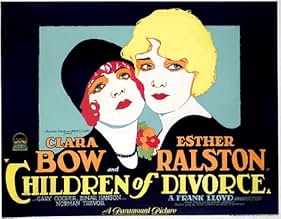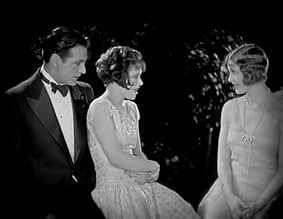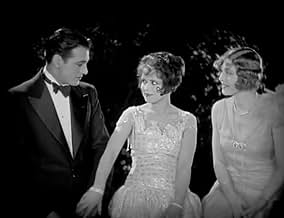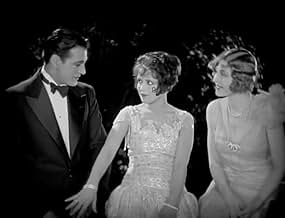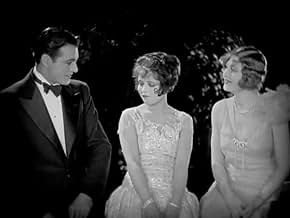Early in the 20th century, divorced ex-pat Americans living in Paris dropped their unwanted children at the local convents and visited them only when their busy schedules permitted. Kitty and Jean were among these lonely children, and the pair quickly become friends. One day, a young boy, Edward, who was also a child of divorced parents, appears, and both girls are smitten with him. Years pass, and the three meet up again in the U.S., where a romantic triangle develops, which expands into a square, when a gold-digging prince enters the scene. "Children of Divorce," which was written by Adela Rogers St. Johns from a novel by Owen McMahon Johnson, is a sudsy melodrama, whose dated appeal lies, not in the story, but in the stars.
The "It" girl herself plays the adult Kitty; vivacious Clara Bow is wonderful as the sexually aggressive woman, who needs to marry well. Jean, Kitty's protector as a child and now described as the richest woman in America, has grown into lovely Esther Ralston. Ralston, who seems to have been largely forgotten, gives a naturalistic performance as a caring understanding woman, who is capable of self sacrifice. However, Jean's money is like catnip to the impoverished Prince Ludovico, played by Einar Hanson, and his uncle, Duke Henri, played by Norman Trevor. But the Prince and his uncle have to compete with tall lanky Gary Cooper of the piercing blue eyes, who captivates both Jean and Kitty. As the adult Edward, Cooper has it all: startling good looks, wealth, education, and lack of ambition. Besides the three stars, Hedda Hopper as Kitty's self-absorbed mother also makes an impression, although the rest of the cast has unfortunately fallen into obscurity.
Besides the melodramatic plot, a few aspects of this silent film may be off putting to general audiences. While the sets are convincing, they are so tall they disappear into the clouds, and the gargantuan doors dwarf the performers. Although a few flourishes of the grand style intrude, the acting is generally natural and underplayed. The film is short, even shorter if the inter-titles are taken into account, and director Frank Lloyd maintains a good pace. However, "Children of Divorce" will likely appeal primarily to silent-film buffs. Already attuned to both the limitations and the pleasures of pre-sound movies, aficionados of silent cinema can overlook the unconvincing drama and relish the luminous stars. Indeed, they had faces then, and Clara Bow, Gary Cooper, and Esther Ralston provide ample evidence herein.


